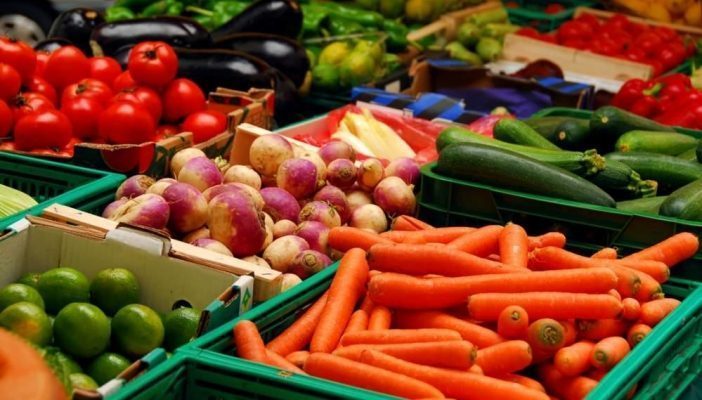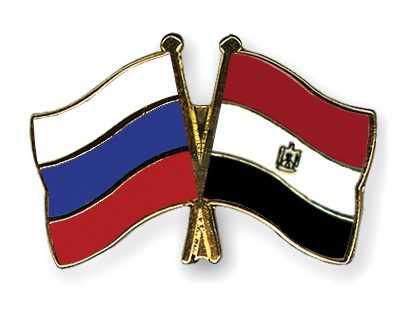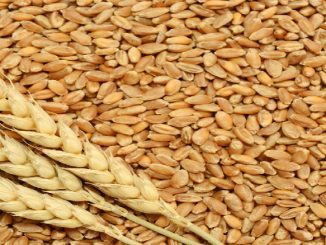
Russia will temporarily suspend imports of fruit and vegetables from Egypt from September 22, Russia’s food safety watchdog said on Friday, hours after Cairo rejected a Russian wheat shipment.
The trade dispute between Russia and Egypt escalated after Egyptian quarantine inspectors rejected a 60,000-tonne Russian wheat shipment due to problems related to Cairo’s policy over the ergot fungus.
Yuliya Shvabauskene, deputy head of the Rosselkhoznadzor service, “We are talking, among other things, about citrus fruits, tomatoes, and potatoes, “according to Interfax (Russian news agency).
She said the ban is being imposed due to insufficient work of Egyptian phytosanitary system, adding that Rosselkhoznadzor had found quarantined items in Egyptian supplies multiple times this year.
In response, one Egyptian fruit-and-vegetables trader said, “This is going to lead to huge losses for export companies.”
He said Russia is the second most important market for Egyptian fruit and vegetable exporters after Saudi Arabia.
He added, “The season is supposed to start at the beginning of October and all the companies have big contracts with Egyptian farmers. This short amount of time won’t allow us to secure other markets.”
In 2015, Russia bought around $150 million of Egyptian citrus products, about 13% of its total citrus imports.
Moscow has a history of using threats and limiting imports in trade disputes, but Cairo’s policy of zero ergot policy has caused several problems recently.
Moscow said last week it was seeking talks with Egypt, its top buyer, over Cairo’s failure to approve Russian wheat shipments since tightening its regulations on ergot, a common grains fungus, in late August.
Egypt was unable to garner a single offer from wheat suppliers at its state grain tender on Friday, forcing it to cancel the tender and raising renewed questions about its ability to tap global wheat markets while maintaining a ban on ergot.
On the other hand, some Saudi traders revealed that the Saudi Food and Drug Authority will ban some vegetables and fruits imported from Egypt after it the laboratory tests showed this year that they aren’t suitable for human usages.
Traders said in a press release that prior to US Department of Agriculture announcement, the Saudi Food and Drug Authority has announced that it has some remarks on the agricultural products that come from countries such as Egypt, a situation that pushed many traders to contact the Egyptian exporters to know the reason behind the emergence of such cases in the fruits and vegetables in order to reach compromises and start compensations procedures.
At the same time, US Department of Agriculture said that laboratory tests confirmed that the agricultural products imported from Egypt were irrigated with sewage water which led later to the emergence of remnants of human and animal wastes on many food items.
In addition, materials predominantly used in burying the dead were discovered as well, according to report released in 360 pages regarding some Egyptian agricultural products, which are exported as frozen vegetables such as mallow, spinach, okra, peas, green beans, artichokes, which makes it one of the major causes of hepatitis disease type(A).
According to the report, US Department of Agriculture will take strict measures with Egyptian imports that would reach bannings, such as strawberry exports or any agricultural products which have been exposed to sewage.
In addition, it put new very harsh measures regarding frozen vegetables imported from Egypt, which states that it should be washed first with filtered purified water.
In addition, laboratory tests showed that products as mango and guava have undergone color and taste agents process banned internationally as it would cause several diseases as Kidney failure, liver disease, and bad effects on blood pressure.
The report also announced banning cheese imports from Egypt after the test showed that it contains” formalin” which is used for preserving dead bodies.
The report also highlighted that limestone, which is used in the installation of tiles, has been used in bleaching the imported Egyptian rice that could lead to cancer.
US restrictions on imported agricultural products from Egypt started when imported strawberries from Egypt were the source of hepatitis A that has sickened 89 people in Virginia, according to the Virginia Department of Health (VDH).
Although it was thought to be isolated in Virginia, the outbreak occurred in seven states.The Center for Disease Control and Prevention (CDC) identified 10 cases in Maryland, five in West Virginia and one case each in New York, North Carolina, Oregon, and Wisconsin.
On August 12, the Centers for Disease Control and Prevention notified VDH that genetic testing of multiple ill persons showed the illnesses were caused by a strain of hepatitis A that had been associated with past outbreaks due to frozen strawberries from Egypt,” according to an August VDH press release.
The Egyptian economy has been suffering, facing one of the harshest downfalls in its history. It suffered from a shortage of foreign currency due to the withdrawal of tourism and foreign investments, which were among the main sources of foreign currency. Moreover, the shortage of foreign currency has led to an unprecedented rise in the dollar exchange rate against the Egypt’s currency. The Central bank of Egypt(CBE) devalued the Egyptian pound last March amid speculations of another devaluation in the coming period. No doubt that the latest suspension in vegetables and fruit exports will have negative repercussions on the Egyptian economy.



